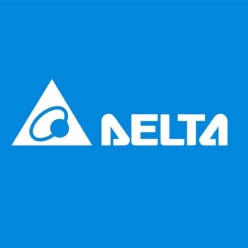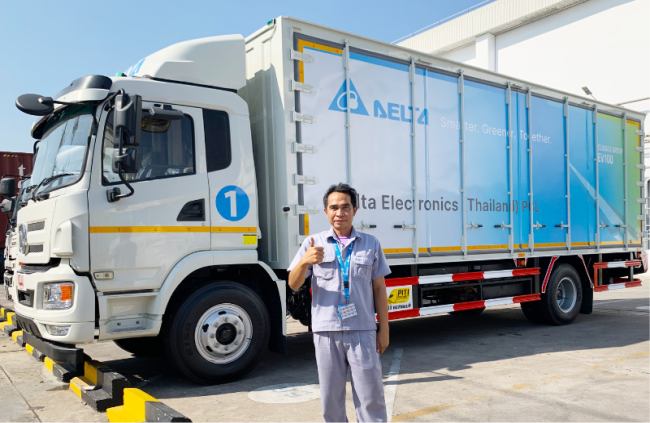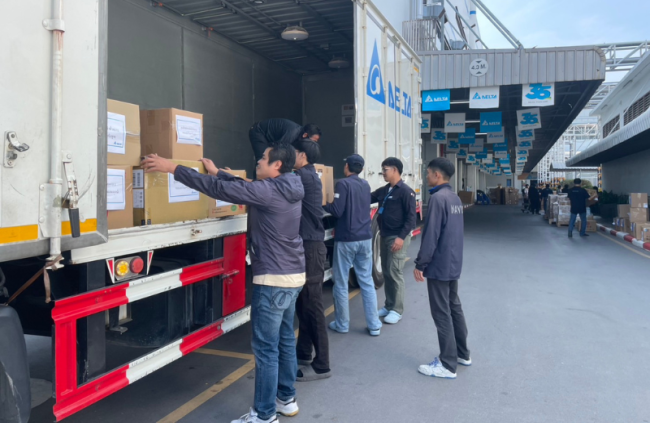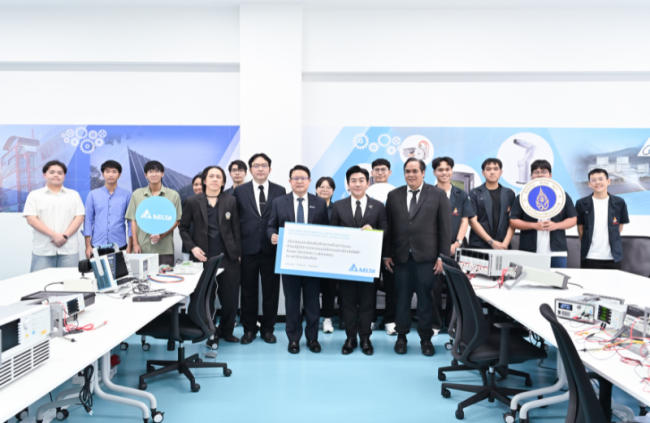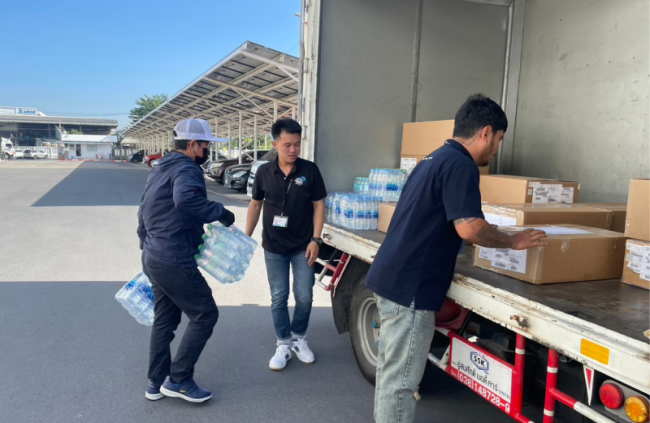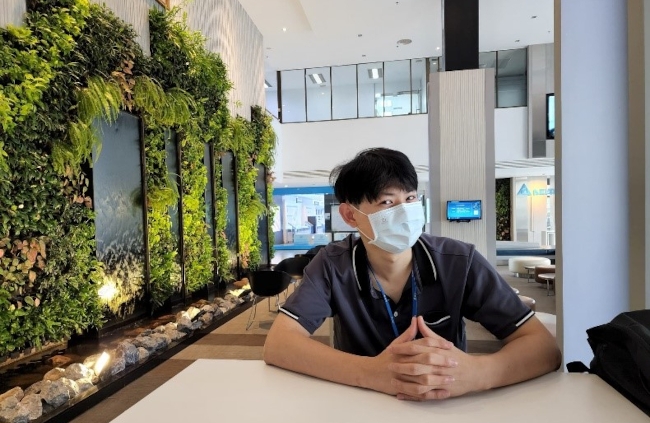How Thai Companies Can Save Costs and the Earth with Green Factory Solutions
By Delta Electronics (Thailand) PCL. - Published May 18, 2022
.jpg) Electricity Consumption for the whole country in the first nine months of 2021
Electricity Consumption for the whole country in the first nine months of 2021
Image source: Energy Policy and Planning Office (EPPO) Ministry of Energy
By David Nakayama, DET Corp Comms
Technical details by Kasemson Kreuatorn, Delta Senior Regional Manager for industrial automation
Improved energy management is one of the ways for manufacturers to cut costs and boost competitiveness. Every day, Thai manufacturers consume enormous amounts of electrical energy, resulting in huge costs that are easily avoided with simple energy management systems.
According to Thailand’s Ministry of Energy, the industrial sector alone consumed approximately 64,657GWh of electricity in the first nine months of 2021, equivalent to around 45% of Thailand’s electricity consumption. This is harmful to the environment, expensive to businesses and is unsustainable.
Sky- high utility bills from inefficient and outdated factory systems waste money and sabotage business growth. Manufacturers who don’t “go green” are in danger of being left behind in today’s global industry landscape that demands Environmental, Social and Governance (ESG) excellence.
As the world’s leading power supply company and a green solutions provider, Delta has years of experience in energy management and green factory solutions. Today we will examine some real-life cases of green factory solutions and cover key steps manufacturers can take to become eco-friendly.
Green is the future for global manufacturing
The urgency of climate change is leading global industry leaders to collaborate on green initiatives like the RE100 by London-based non-profit organization The Climate Group. RE100 aims to promote the global transition to clean energy and move towards a zero-carbon grid. Over 300 of the world’s top companies are RE100 members (including Delta). i
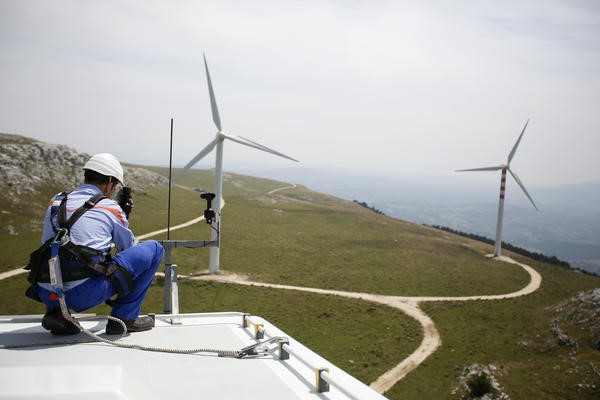 A wind turbine worker in the UK
A wind turbine worker in the UK
Image source:, RE100 Climate Group.
Many of Delta’s partners and customers are RE100 members. These include top global brands in the electronics, automotive, telecom and digital infrastructure industries who are all committed to 100% renewable energy. Therefore, if you’re a manufacturer wanting to work with top-tier global partners, you must meet the rigorous standards required by elite players in the global supply chain.
Thailand’s push to go green
Given the global context of ESG, Thailand’s industry must undergoes a massive green transformation to remain competitive. In March 2021, Thailand’s industry Minister Suriya Juangroongruangkit ordered the Department of Industrial Works (DIW) to push all 71,130 industrial plants across the country to achieve Green Industry standards as developed by the United Nations Industrial Development Organization (Unido).
During the COP26 Climate Change Conference in November,, Thailand’s Prime Minister Prayut Chan-o-cha made a pledge for Thailand to reach carbon neutrality by 2050, and net zero GHG emissions by 2065. This included having 15 million electric vehicles on Thai roads by 2035.
The DIW reports that since 2011, about 20,000 Thai factories have received Green Industry certificates along with 110 Green Industry labels, which indicate products manufactured in an environmentally friendly manner.
Delta’s Green Status
The Ministry of Energy and the Ministry of Industry designated Delta as a model for green factories in Thailand. Delta’s RE100 target is 100% renewable electricity throughout our entire global operations by the year 2030. Our targets for regional operations are Delta Thailand RE35 and Delta India RE30 by 2025 and all regions RE100 by 2030. As an energy efficiency leader with two LEED Gold certified green factories in Thailand, Delta can share a lot of knowledge and experience with manufacturers.
In 2020, Delta solar rooftops generated 9,569 MWh of renewable energy and 2,716 MWh of energy savings as part of our commitment to reduce carbon intensity in operations by 20% by 2025. From 2015 to 2020, Delta achieved a 39% energy intensity reduction in our Thailand operations, exceeding its original target of a 30% reduction.
How do you start your green factory transformation?
Being part of the green industry requires planning and long-term commitment. As a manufacturer, you must start researching different green activities and environmental management systems such as ISO 9001, ISO 9001, OHSAS 18001/ISO 45001, CSR and Green logistics. See which processes resonate most with your model.
Other green activities that Delta recommends are, include ISO14001, ISO 50001, CSR-DIW, CSR-DPIM, Green Label-Thailand, Green Product Services Thailand and/or the PM Award.
Asking the right questions is also essential. For example, if you want to improve your electric energy consumption, think about:
- What’s our energy consumption per plant, area, or machine?
- Is there any room for optimization potential?
- What are the energy costs per unit or batch?
- Is there room for optimized energy procurement?
Once you have an idea of the areas you’d like to focus on, get in contact with Delta. We train energy teams from major manufacturers in the country, and we can help.
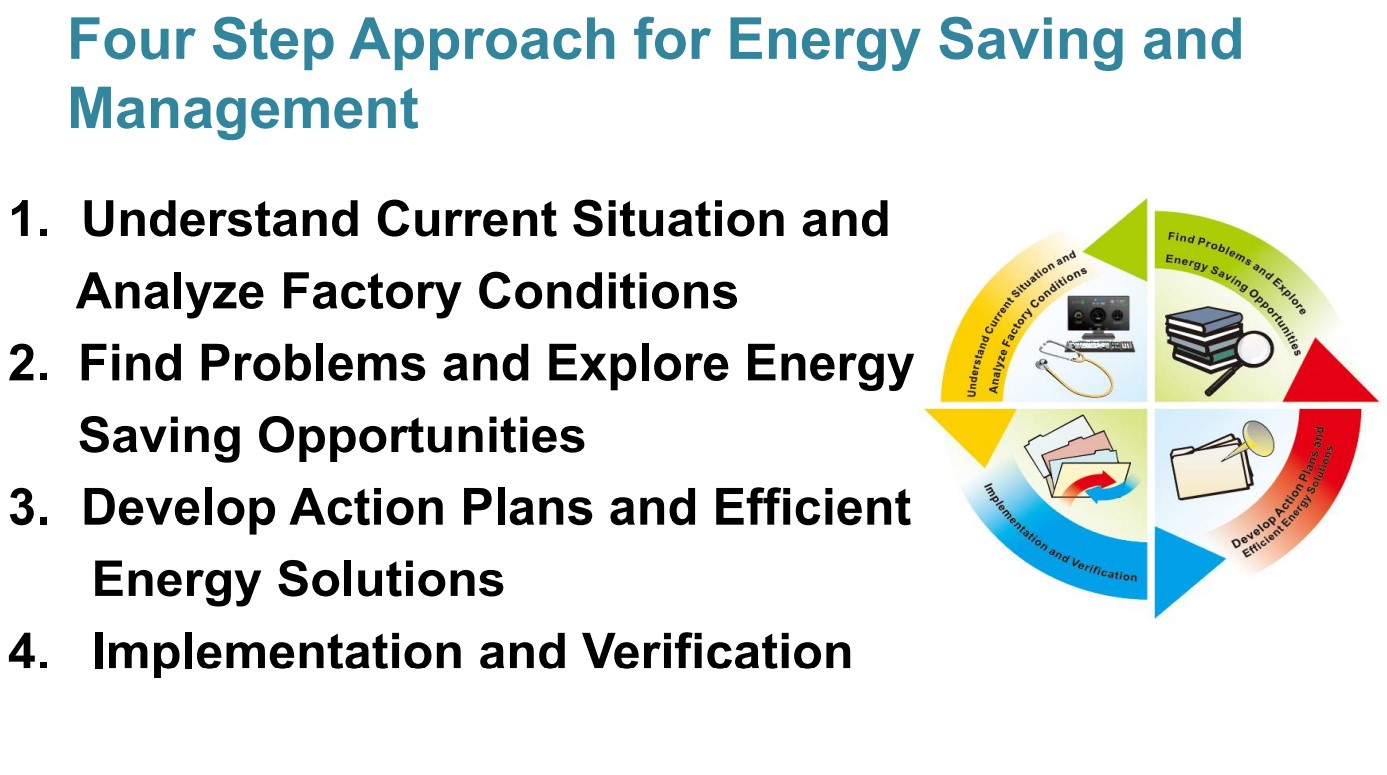
Opportunity areas for factory solutions
Real-life examples
Some common areas manufacturers can improve energy efficiency are: in Blower/Water Pumps, such as circulation pumps, sewage pumps, smoke exhausters, induced/forced draft blowers and cooling towers in factories. Other opportunities for greater energy saving and efficiency include in any factory’s HVAC central air conditioners; in Air Compressors; during any Lifting processes that involve the use of cranes, bridge cranes or elevators; in the Factory Lighting and lastly the overall improvement of a factory’s Power Quality.
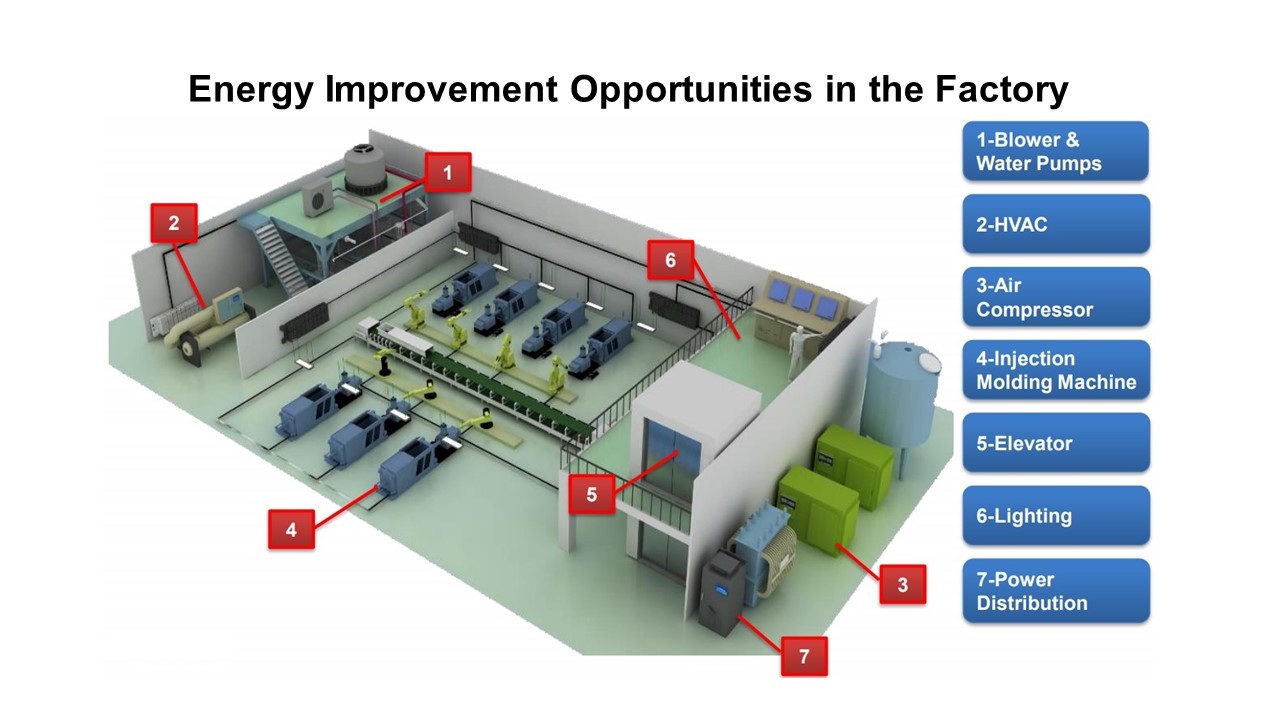 Delta recommends VFDs. Why?
Delta recommends VFDs. Why?
VFDs (variable-frequency drives) save energy by enabling electric motors to operate at less than full speed. VFDs are like the accelerator ofn a car – they can adjust the speed of an electric motor for HVAC fan or pump, based on demand, to save energy and prolong motor and mechanical component life. Without a VFD, an HVAC fan or pump motor is either 100% on, or 100% off. This wastes a lot of electricity during times you don’t need full power.
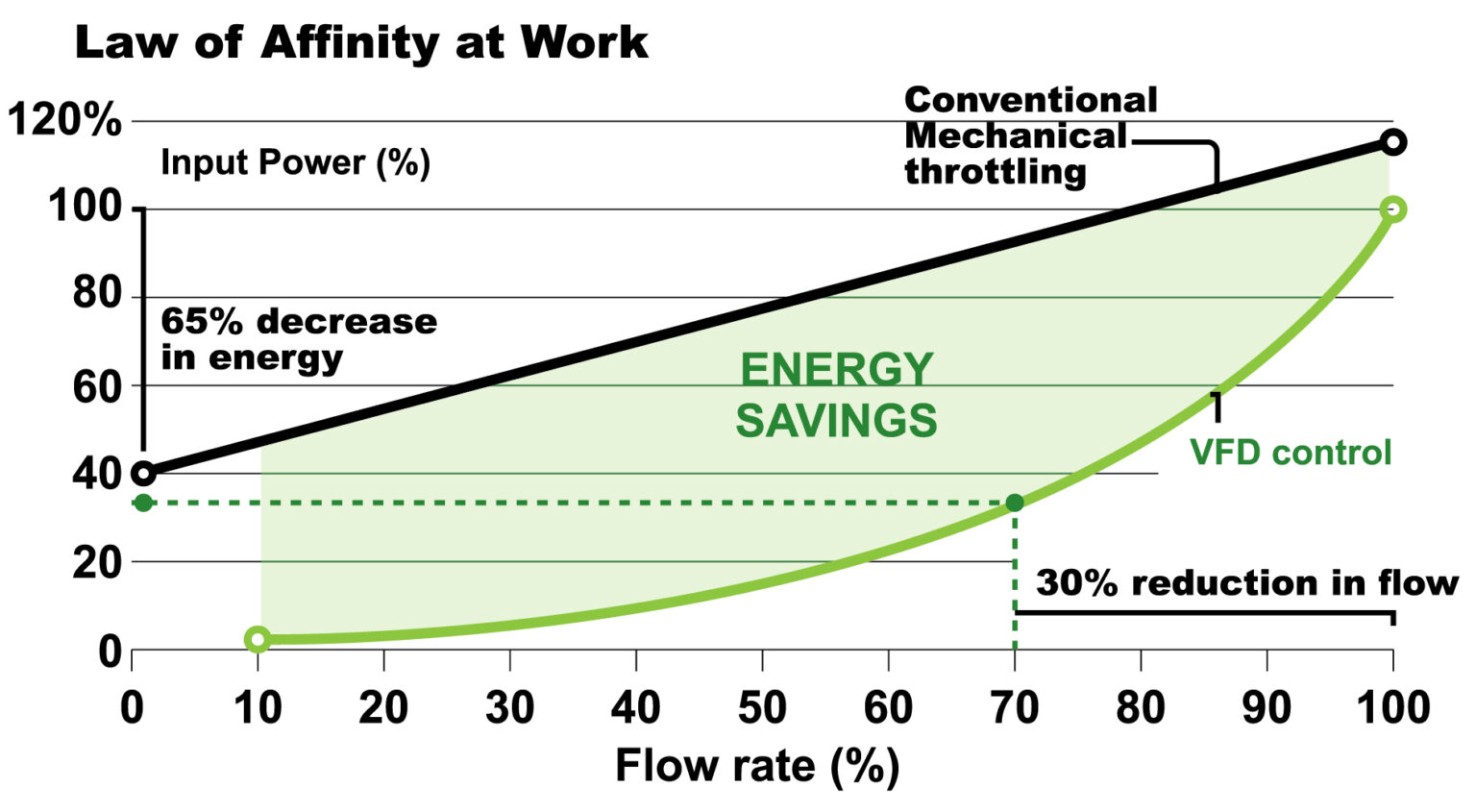
Image source: Delta Automation Inc.
The laws of affinity for centrifugal pumps and fans, for instance, tells us that if we reduce the flow by 30%, we can lower the energy consumption by approximately 34.3%, or a nearly 65% reduction in energy use when compared to the consumption at 100% flow.
You can also improve the energy efficiency in a factory system by replacing your inefficient motors with high-efficiency motors. Delta has a Synchronous Reluctance Motor, which is an induction motor designed to minimize both electrical, including inductive loss of magnetic field, and mechanical losses by adjusting all the motor’s sliders, rotors, bearings and cooling fan parts.
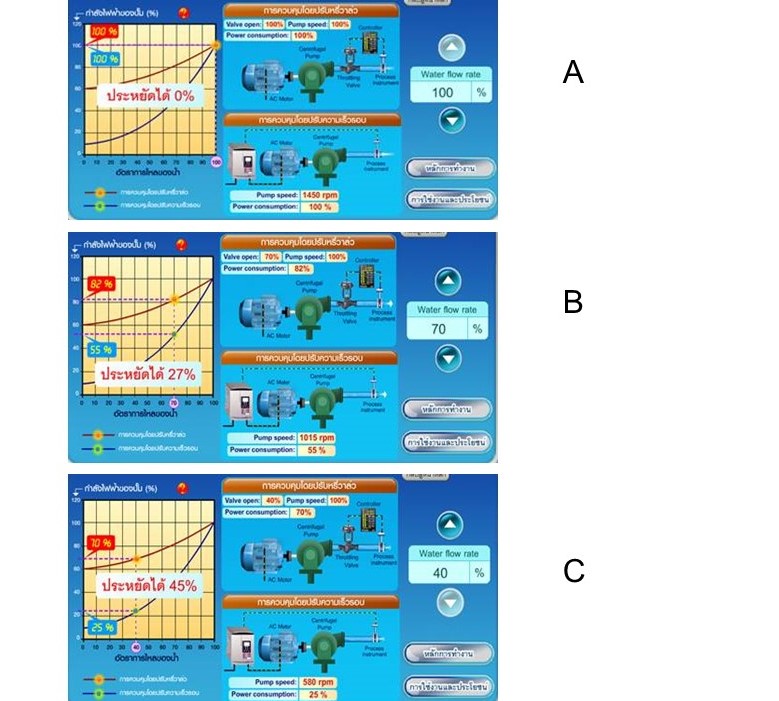
In the above image, we see an electric motor running at three different speeds for different water flow rates and how much energy we can save with a VFD:
- First, the motor is running at full speed and power for 100% water flow. The motor’s electricity load is at 100% with both a valve and a VFD at 100% power for pump control. There is no energy saving.
- However, when the water flow is only 70% the electricity load reduces to 82% with a valve. But when we use a VFD the power usage reduces to 55% and we can gain 27% in energy savings.
- Finally, when the water flow reduces further to only 40% then the electricity load reduces to 70% with a valve. But when we use a VFD the power reduces to just 25% and we can gain 45% in energy savings.
What’s the next step after Energy Saving?
Once you start optimizing your systems, the next step is to monitor and manage energy with data. Delta has developed a powerful and user-friendly software called DIAEnergie to give manufacturers a quick and accurate view of your energy consumption in real-time.
The DIAEnergie system offers a base for developing any energy management strategy and creating an effective energy control framework to improve a factory’s energy efficiency and reduce total operating costs.
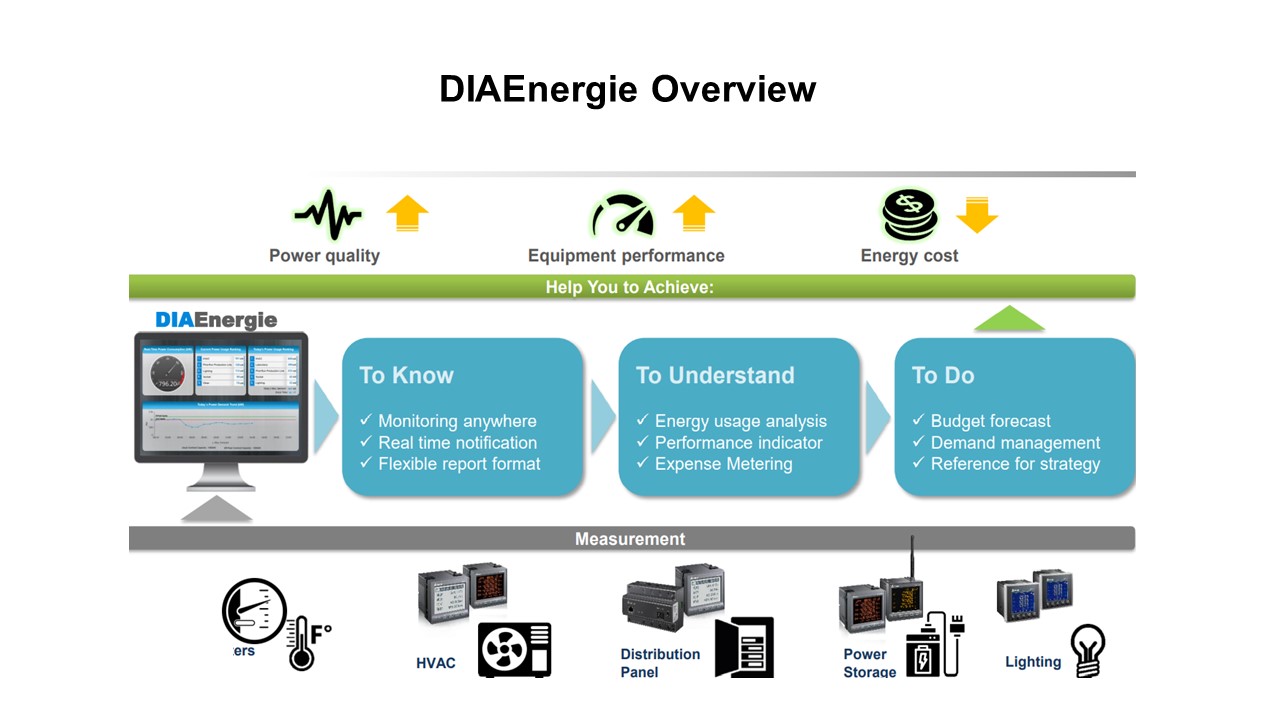 DIAEnergie is an easy way to get more out of your energy consumption reduction and cost down projects. Another benefit of lower energy consumption is lower carbon emissions that position you to meet global ESG standards, sustainability certifications and opportunities to highlight your carbon reduction performance to customers and stakeholders.
DIAEnergie is an easy way to get more out of your energy consumption reduction and cost down projects. Another benefit of lower energy consumption is lower carbon emissions that position you to meet global ESG standards, sustainability certifications and opportunities to highlight your carbon reduction performance to customers and stakeholders.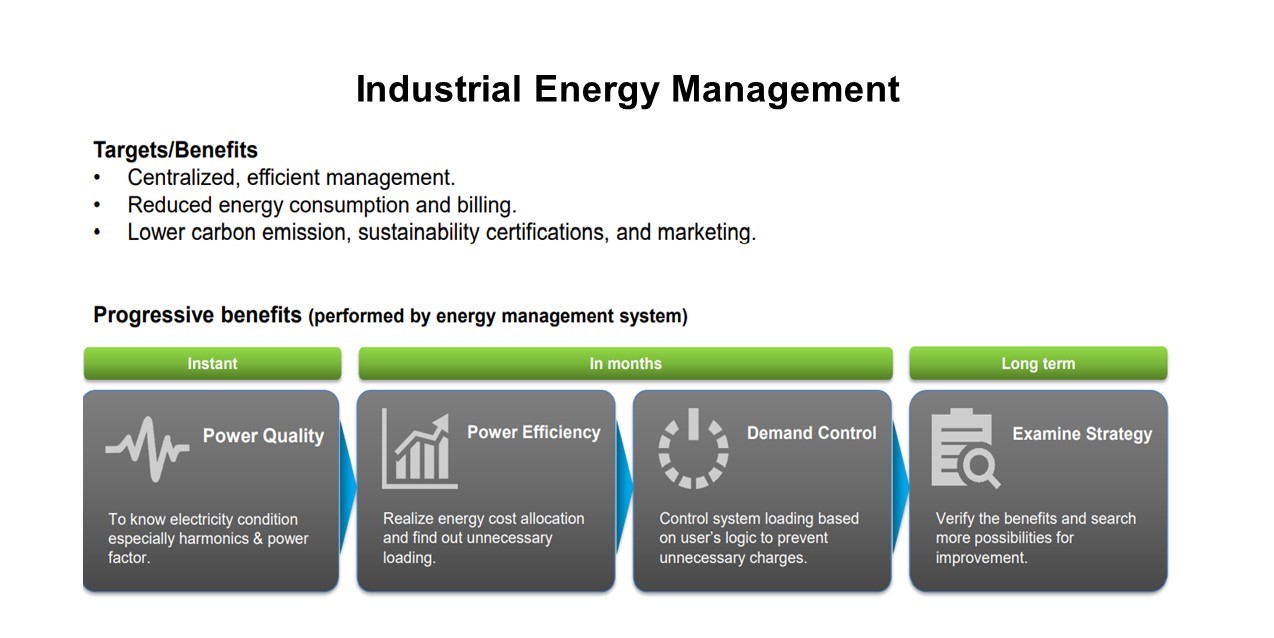 You can also use DIAEnergie with a Human Machine Interface (HMI) visualization software like VTScada, which gives your team’s managers and operators an easy-to-use platform for customized industrial monitoring and control applications. VTScada is widely -used in critical applications of numerous industries with a leading position in the waterworks industry of North America. In Thailand, Delta highly recommends using DIAEnergie with VTScada to give the most flexible and accurate energy management and visualization.
You can also use DIAEnergie with a Human Machine Interface (HMI) visualization software like VTScada, which gives your team’s managers and operators an easy-to-use platform for customized industrial monitoring and control applications. VTScada is widely -used in critical applications of numerous industries with a leading position in the waterworks industry of North America. In Thailand, Delta highly recommends using DIAEnergie with VTScada to give the most flexible and accurate energy management and visualization.
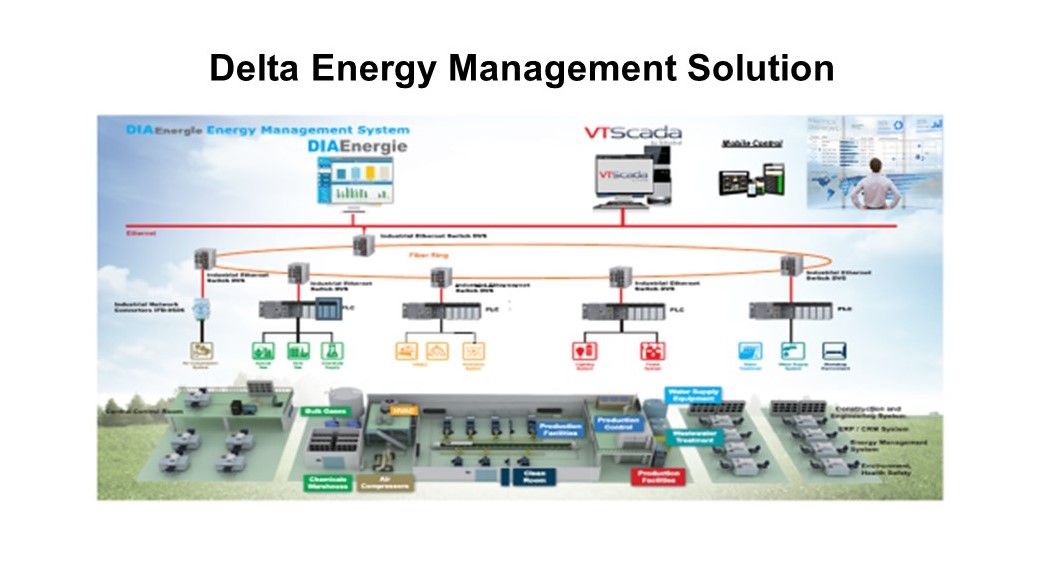 Conclusion
Conclusion
As our world continues to grow more conscious of the impact industry is having on the environment, it’ is essential that manufacturers update and optimize their energy strategies. Factories run on a lot of energy, so becoming eco-conscious starts with efficient energy use.
Delta recommends taking simple yet impactful early steps like installing high-efficiency motors and VFDs. You will immediately see positive results in your factory’s lower energy consumption, costs and carbon footprint.
The next steps in your green factory journey are implementing energy management and continuous improvement in your green building and green process management. This requires accurate and comprehensive energy data monitoring and analysis. DIAEnergie and VTScada are great tools you and your teams can all use to get on the same page and follow through with your factory’s energy management strategy.
We wish you the best of luck on your factory’s green transformation journey. For more information and advice on how to get started, please get in touch with Delta today.
References
http://www.eppo.go.th/images/Energy-Statistics/energyinformation/Energy_Statistics/00All.pdf
https://www.nationthailand.com/in-focus/30403494
https://thaiembdc.org/2021/11/10/thai-prime-minister-pledges-more-electric-vehicles-at-cop26/
https://deltathailand.com/en/products/Automation/Industrial-Automation/1/AC-Motor-Drives
https://deltaautomation.com/go-green-with-vfds/
https://slideplayer.com/slide/3901846/
https://deltathailand.com/en/products/Automation/Industrial-Automation/Software-System
https://deltathailand.com/en/products/Automation/Industrial-Automation/Software-System/VTScada
